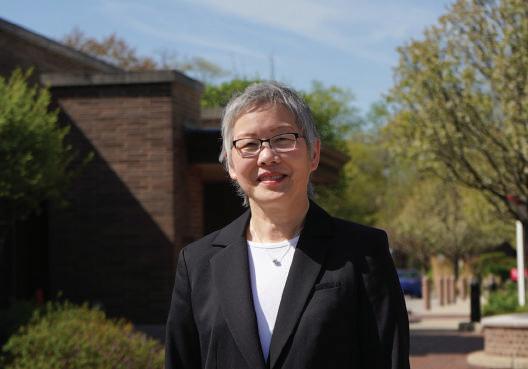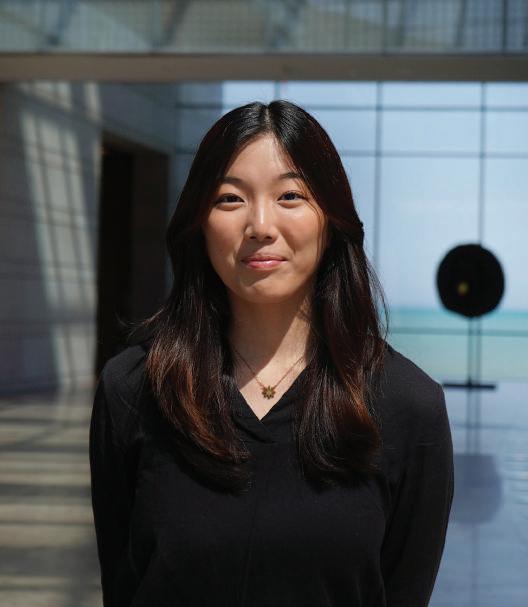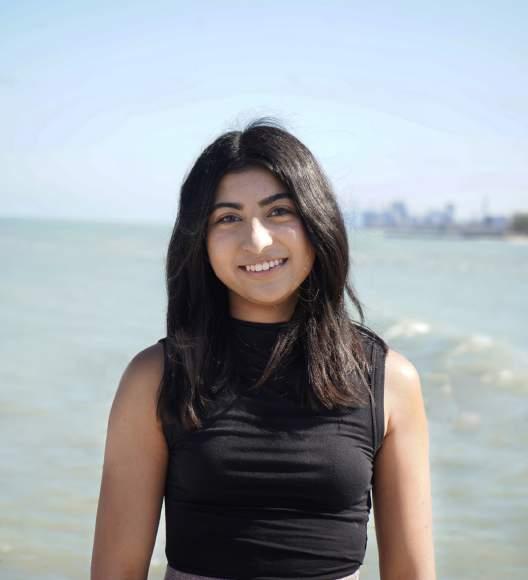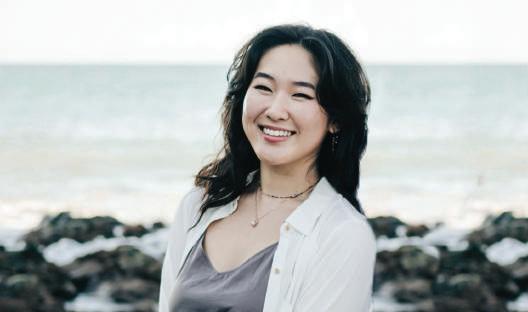
4 minute read
Stepping civics into
from nuAZN | #29. COMING OF AGE
by nuAZN
The different paths of Asian Americans to political engagement.
Since turning 18, Jean Ikezoe-Halevi (Medill ’80) has never missed a primary or general election.
Advertisement
She says she’s kept this record because she doesn’t take her rights for granted, as much of Ikezoe-Halevi’s family immigrated from Japan to the U.S. in the early 20th century.
“My parents were in an internment camp during World War II,” says Ikezoe-Halevi, who is Japanese American. “They lost their rights as citizens.”
But Ikezoe-Halevi — a longtime broadcast journalist turned village trustee for Lincolnwood, Illinois — says she also had an aversion to politicians for much of her professional life. Her least favorite topic to cover as a journalist was politics, she says.
However, Ikezoe-Halevi saw an ad to serve on Lincolnwood’s inaugural Human Relations Commission in 1997, which aims to represent a diversity of residents and unite different communities, and she successfully joined.

On the commission, Ikezoe-Halevi worked with other members to put up “flags of diversity” along Lincoln Avenue. She also served on the city’s Zoning Board of Appeals from 2013-17.
She initially ran for village trustee in 2013, coming up short, but won election in her 2017 campaign.
“I saw some other people that I knew who were running, and it dawned on me,” she says. “If they’re running, why can’t I run?”
Between 2000-2020, the Asian population in the U.S. increased by 73% to 20.6 million people, according to census
Jean Ikezoe-Halevi
data. Asians now represent 6.2% of the American population and are the fastest-growing racial group in the country, the Pew Research Center reported in 2021. Yet, a May 2021 report from research group Reflective Democracy Campaign shows that Asian Americans make up just 0.9% of elected leaders in the U.S.

Some Asian Americans at Northwestern say they feel civic participation has become increasingly important for the community. However, many don’t specifically see political office as a priority because of their concerns about the political environment and their interests in other careers in advocacy, policy research and public sector law.

For SESP second-year and Associated Student Government Senator Anna Alava, meeting elected officials who initially didn’t want to be politicians during her “Women and Political Leadership” course influenced her attitude toward holding public office.
“It was interesting to hear a lot of them talk about how they didn’t come into politics wanting to be a politician,” Alava says. “It was more like they were just living and saw an issue with, ‘How can I affect this?’”
Alava, who is Filipino and Korean American, has worked with KAN-WIN, an organization that fights sexual violence in Asian American communities. She has also volunteered for the HANA Center, a Korean American and Asian American advocacy and education group.
As Alava entered civic life, she says she kept her Asian identity in mind. For now, Alava wants to work in education policy. Unless being an elected official presents the opportunity to effect change on specific issues, Alava doesn’t plan on holding political office.
During the Asian Americans Advancing Justice Youth Summit in fall 2022, Alava met with legislators to discuss avenues toward immigration reform. Listening to an immigration attorney’s presentation during the summit showed her how law can serve the public.
Katya Chadha
“It’s obviously hard to imagine how different experiences would be without that part of your identity,” she says. “But it’s almost like it’s not a part of my identity and the way I approach politics.”
Chadha helped pass policy on pedestrian safety on a youth council her Chicago alderperson established. She’s also worked for a Chicago nonprofit to fight housing discrimination.

But Chadha has grappled with Asian erasure in policymaking. While attending a Chicago municipal meeting covering home loan mortgage applications, she says she initially didn’t notice the data had no statistics on Asian Americans. It was only when another audience member pointed out the absence that the exclusion and its effects crossed Chadha’s mind.
Chadha, who is South Asian, says the way presenters lumped Asians into white data was problematic because it didn’t take into account barriers that members of different Asian diasporic groups and immigrants encounter, such as lower education levels.
“There might be issues affecting Asian Americans that are not affecting other people that should be raised,” she says. “That is something that tends to get drowned out.”
“I can combine interest in law and advocacy and not have to ‘sell out,’ per se, in some corporation,” Alava says. “I can still really deeply care about what I work in.”
SESP second-year Hana-Lei Ji says she is interested in public policy — but not public office.
Ji is an active member of Students Organizing for Labor Rights (SOLR), which aims to improve conditions for student and service workers at NU. During her time at SOLR, Ji has represented the organization at a variety of local community meetings, including discussions about the University’s broader impact on Evanston.
After arriving on campus, Ji also wanted to become more involved in civic life in her home state, so she joined the Hawaii State Youth Commission, which advises legislators and the governor on policy related to young people.

Ji says while it’s important for people to consider their Asian identity in organizing work, it initially did not spark her civic engagement. What pushed Ji to understand and give back to her surrounding communities both in Evanston and Hawaii, she says, was growing up in Hawaii amid a mix of Asian and Native Hawaiian cultures.
“The values of hard work but also support everyone has for one another — I think it’s very similar to advocacy work and community organizing,” Ji says.
When engaging in politics, Weinberg second-year Katya Chadha says she sometimes sets aside her Asian heritage because it seems there’s no space to express her Asianness.
Ikezoe-Halevi says she’s proud to live in a community with political representation that reflects the diversity of its residents. Two of her five fellow village trustees are Asian American, and the village’s mayor is Indian American. About a quarter of Lincolnwood’s population identifies as Asian.
While the country also seemed to be moving forward in accepting Asian Americans for the past several decades, IkezoeHalevi says, that progress has reversed since the start of the COVID-19 pandemic. She said there has been significant prejudice against Asian Americans in recent years.
“It’s like everything crashed and burned,” she says.
Ikezoe-Halevi hopes despite these setbacks, more Asian Americans will participate in civic life, and stand up for and protect the rights of other Asian Americans.
“We can’t afford to be pushed aside,” she says.








